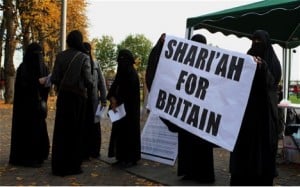When I first considered writing about Pakistan’s Shad Begum, one of the recipients of the 2012 International Women of Courage Award, I was quick to label the event as yet another attempt by American authorities to politicize women’s rights issues in self-serving ways. Undoubtedly, politicization of Muslim women not only has a colonial legacy but is also increasingly prevalent in Islamist politics in predominantly Muslim nations, making my assumption about the purpose of the award understandable. After a glance at the bios of the 2012 Courage Award recipients (and those from previous years), I realized what a disservice this assumption was to the achievements of these women in their efforts towards raising awareness on key issues affecting Muslim women in their respective countries.

Pakistan’s Shad Begum, along with ten other women, was awarded the US State Department’s 2012 International Women of Courage Award in Washington on 8 March 2012. The “Courage Award” annually recognizes women around the globe who have shown exceptional courage and leadership in advocating for women’s rights and empowerment, often at great personal risk. Shad Begum was recognized for her efforts in the areas of political training, microcredit, primary education and health services for women through the Association for Behavior and Knowledge Transformation (ABKT) for which she is the founder and executive director. She works to improve lives of women in communities of Khyber Pakhtunkhwa (a conservative, Taliban-infested region in the North West of Pakistan), and her efforts in Dir are often highlighted and have of late put her life at risk.
Shad Begum is not the only Pakistani to have won this award. Dr. Begum Jan (also coming from the FATA region like Shad Begum) won in 2008 for her efforts through her organization, the Tribal Women Welfare Association (TWWA), and Ghulam Sughra (from the Southernly Sind province) in 2011 was acknowledged for her role in creating the Marvi Rural Development Organization (MRDO), an NGO focused on creating community savings funds and raising awareness of education, health, human rights, and social development issues.
It is interesting to note that Shad Begum is a political voice in her own right, having contested the district councillor’s election on a Jamaat-e-Islami seat. It is not impossible to suggest therefore, the State department may have hoped to use Shad Begum’s nomination and subsequent win to highlight Begum’s participation in politics as a positive indicator of Islam’s confluence with women’s political participation.
Many of the recipients of this award come from Muslim majority countries. For instance, in 2012 alone, seven of the ten recipients were of Muslim origin representing Turkey, Sudan, Saudi Arabia, Maldives, Libya, and Afghanistan including Pakistan. It is no surprise, therefore, that this information automatically raises the question of whether this award is merely another tool of diplomacy extended by the US administration to further politicize the issue of women’s rights in Pakistan (and the Muslim world) and use it as a barometer for the country’s standard on human rights and freedoms, or whether the award for courage genuinely recognizes the singular efforts of an individual to improve social conditions for the women of her country. The list of winners also provides evidence of women being awarded for efforts in conflict areas like Sudan, Iraq and Afghanistan.
Shad Begum hails from the northwestern Federally Administrative Tribal Areas (FATA), a deeply conservative region immersed in armed conflict between the Pakistan army and the Tehrik-e-Taliban still active in the mountains bordering Pakistan and Afghanistan. In addition to the war since 2004, this province has some of the lowest levels of socio-economic indicators including low levels of maternal mortality, female literacy and women’s economic and political participation. In light of such circumstances, Shad Begum’s achievements in the area of women’s empowerment for the Khyber Pakhtunkhawa region are indeed worthy of recognition. Highlighting such achievements of women, often working under difficult circumstances in countries struggling with poverty and political instability, can be construed as effective advocacy work on behalf of the State Department especially in countries where women are not often lauded for their success at overcoming cultural and socio-economic barriers.
Finally, while a recent Huffington Post article wants readers to recognize and appreciate a specific set of Muslim women and their committed efforts towards women’s empowerment, it is just as important to appreciate those who service their communities on the ground – women like Shad Begum and others who risk both their lives and social standing in pursuit of equality and equity for Muslim women in their respective countries.











